Do Protein Bars Give You Gas? Here’s What to Avoid
Author:
Reviewed by:
(Certified Nutritionist, S&C specialist, M.Sc.Eng. Biotechnology)
Unlock your full potential by engaging with our experts and community! Have questions about your fitness journey or looking for expert advice on weightlifting techniques? Don’t hesitate — leave a comment below and Camila Parente Santos will provide a personalized answer and insights to help you reach your goals.
Torokhtiy is reader-supported. Some links are affiliate links, and we may earn a commission at no extra cost to you. See our disclosure page for details.
If protein bars make you gassy, the answer may lie in specific ingredients found in your protein bars. We’ll be looking at some of the most common culprits – like lactose, fructose, and more – and how to find a bar that works for you.
Do Protein Bars Give You Gas? – If protein bars make you gassy, the root cause may be lactose, fructose, sugar alcohols, or other sweeteners like monk fruit and stevia. Choosing a protein bar that doesn’t contain any of these ingredients may reduce your gassiness.
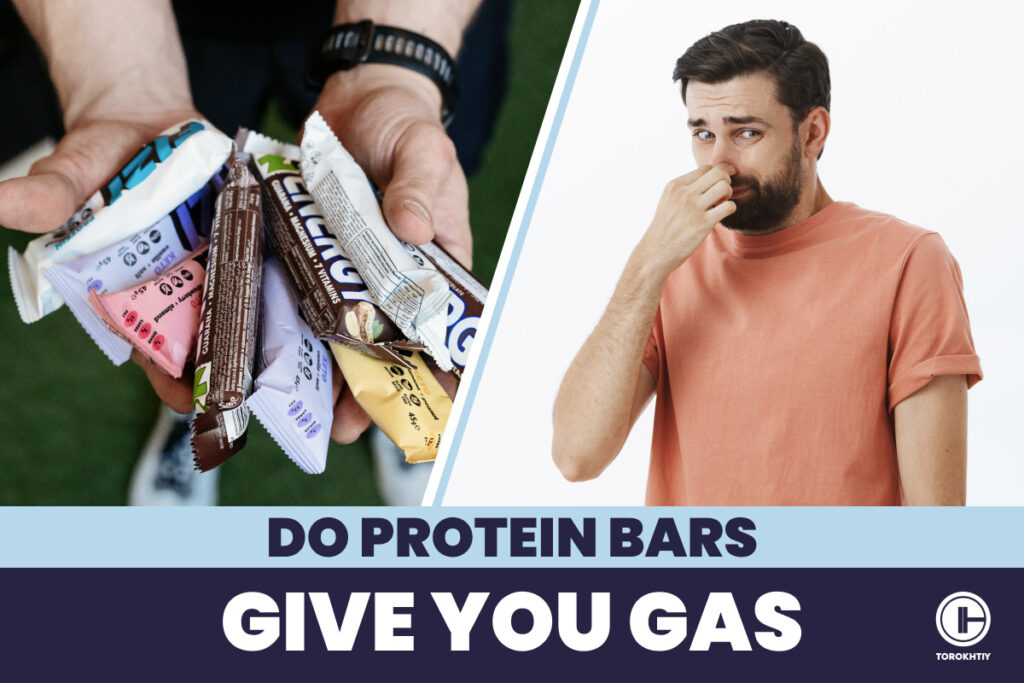
Do Protein Bars Give You Gas?
Do protein bars make you poop? Do protein bars cause bloating, gas, or other unpleasant symptoms?
It’s fairly common that protein bars cause stomach problems. While it’s a common myth that protein itself will make you gassy or cause digestive issues, this problem is much more likely to stem from the lactose or other sweeteners that are commonly found in protein bars.
As we’ll be covering in more depth below, if you’re lactose intolerant, protein bars will be much more likely to cause gassiness. Otherwise, it may be sweeteners like sugar alcohols, monk fruit, and stevia that are the root of the issue.
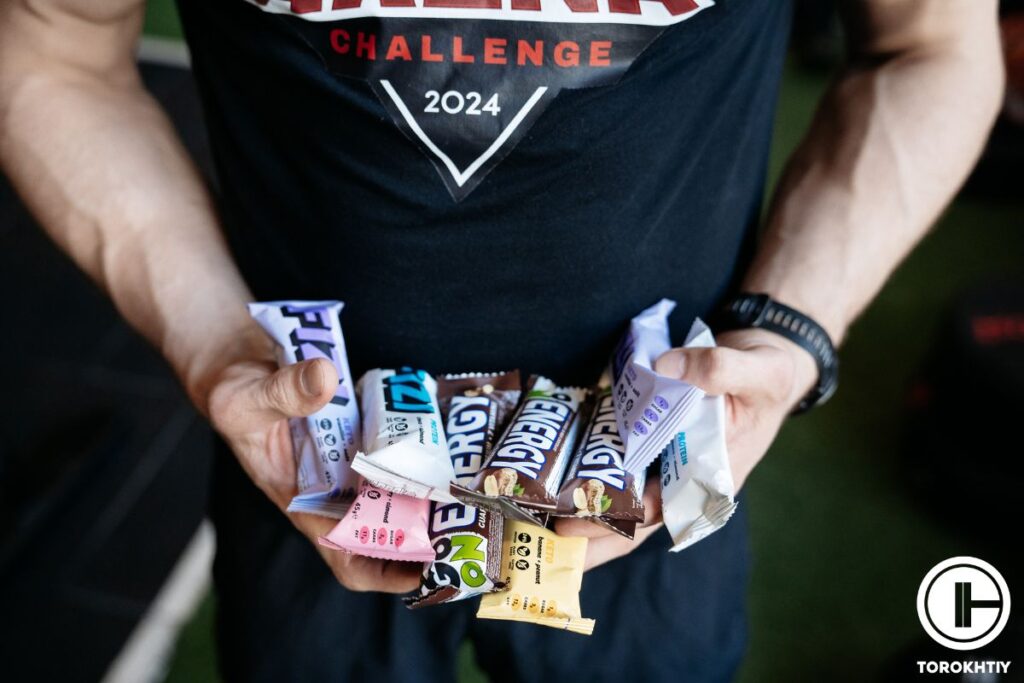
The main point is that if protein bars make you gassy, the issue isn’t protein bars in general. Instead, the issue is likely being caused by one or two specific ingredients in the protein bar you’re eating. By trying a few different options, you can figure out what’s causing the problem and find a protein bar that doesn’t cause gas.
So, if protein bars make you gassy – don’t lose hope! By following the advice in the rest of this article, you’ll hopefully be able to find a bar that suits your needs and doesn’t make you nearly as gassy.
What are the 4 Possible Causes of Gassiness from Protein Bars?
Now, let’s get into the most common reasons protein bars make people gassy. Gassiness from protein bars most likely comes down to lactose, fructose, sugar alcohols, or stevia and monk fruit. Let’s take a closer look at why these components cause gassiness.
1. Lactose Intolerance
If you are lactose intolerant – meaning your body has difficulty lactose – you will likely experience symptoms of bloating, diarrhea, and gas when consuming dairy products high in lactose. This, of course, includes many protein bars made with whey protein concentrate, or other forms of protein high in lactose.
Of course, if you’re not lactose intolerant, protein bars with high lactose content are unlikely to cause gassiness. So, consider how you react to other dairy products as an indicator of whether this is what’s causing your gassiness.
2. High Fructose Content
Especially in people with IBS and other GI disorders, fructose can lead to symptoms similar to those caused by lactose intolerance, including bloating, nausea, and gas. If you have any gastrointestinal issues, it’s possible that fructose is the source of gassiness.
Sensitivity to fructose will vary from person to person with GI disorders. So, it’s possible that a bar lower in fructose won’t cause any issues, while a bar with higher fructose content will lead to gassiness.
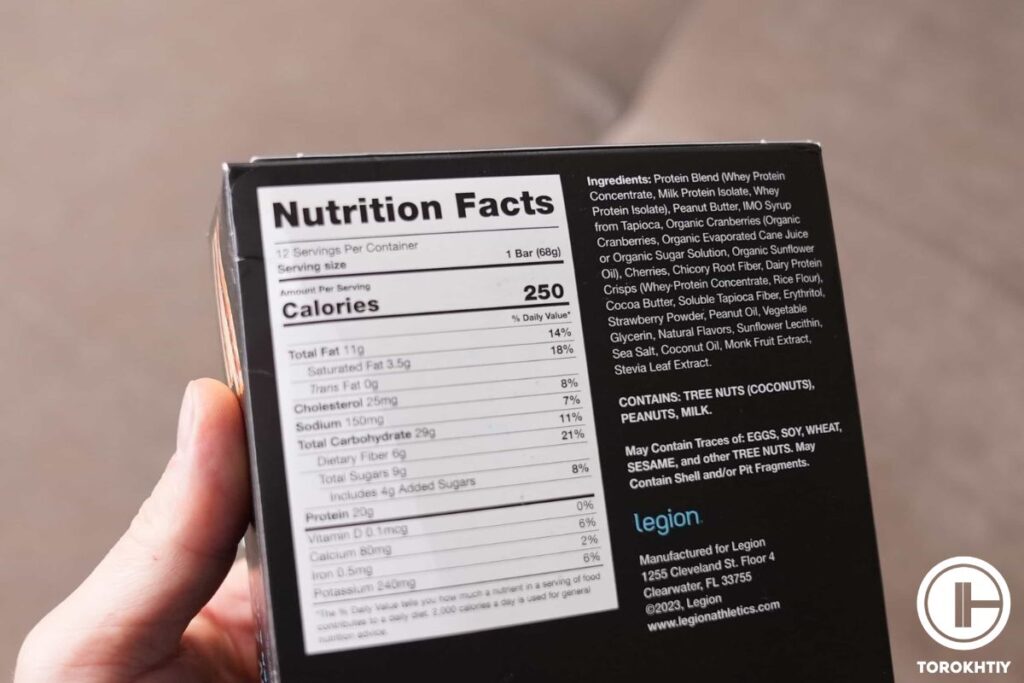
3. High Sugar Alcohols Content
Another potential cause for gassiness is sugar alcohols – like sorbitol, xylitol, erythritol, etc. These are a low-calorie alternative to sugar, although they are linked to GI distress when taken in high amounts. Their slow digestion is what appears to be responsible for excess gas production.
Similar to lactose and fructose, people will have varying reactions to sugar alcohols. As a result, it’s recommended to gradually introduce sugar alcohols into your diet, and attempt to avoid them if they end up causing any symptoms like gassiness.
4. Stevia and Monk Fruit May Be to Blame
Finally, if lactose, fructose, and sugar alcohols aren’t the root of the issue, it’s possible that other alternative sweeteners like stevia and monk fruit are to blame. Stevia is probably more likely to cause GI distress, although it’s possible that monk fruit will cause some issues as well.
Overall, it’s more likely that one of the other components listed above is causing gassiness. So, we recommend ruling out all the other options before attempting to cut out stevia and monk fruit as well.
4 Tips for Choosing a Protein Bar to Minimize Gassiness
Now that we’ve gone over a few reasons why protein bars may be making you gassy, how do you find a protein bar that works for you? Below we’ll be looking at a few main tips for finding a bar that doesn’t cause any GI distress.
1. Avoid Bars with a Huge List of Ingredients
One of the easiest ways to find a bar that won’t make you gassy is to prioritize options that contain a minimal amount of ingredients. For example, if you find a bar that doesn’t contain high fructose, sugar alcohols, stevia, or monk fruit, you can determine if any of these specific ingredients were causing the issue.
In general, the fewer ingredients a bar contains, the less likely there is going to be something that will make you gassy.
2. Choose Bars with Whey Protein Isolate
If you’re lactose intolerant, you don’t necessarily need to avoid dairy entirely! Did you know that because whey isolate is such a highly filtered form of protein, most of the lactose is removed? This typically makes it fine for lactose-intolerant people to consume.

With this being said, try to avoid concentrates or other dairy-based proteins, as these will likely cause issues for people with lactose intolerance.
3. Prefer Bars With a Low Amount of Sugar Alcohols
Next, by eliminating specific ingredients like sugar alcohols, you can get a better idea of what’s causing your GI distress. This may be more helpful than eliminating numerous ingredients at once, as it will teach you what to avoid in the future.
With that being said, by looking for bars with high-quality formulas and minimal amounts of ingredients, it’s unlikely they will contain sugar alcohols anyway!
4. Choose a Bar Without Stevia and Monk Fruit
Finally, if all else fails, try to avoid stevia and monk fruit as well. As we mentioned earlier, these ingredients aren’t super likely to cause gassiness, although you may very well have a sensitivity for them. So, while this should be a last resort, keep it in mind if nothing else works!
Transparent Labs Protein Bars
- Protein Source: Grass-Fed Whey Protein Isolate
- Flavors: Peanut Butter Chocolate Chip
- Vegan: No
- Protein per bar: 15g
- Fats ber bar: 16g
- Carbs per bar: 23g
- Fiber per bar: 3g
- Added Sugar: 5g
- Sugar Alcohol: No
- Calories per bar: 280
- Sodium per bar: 280mg
- Bars per Package: 12
- Bar Weight: 60g
- Price per bar: ~$3.33
- Recommended by Athletes: Hafthor Bjornsson, Paul Sklar, Sean Harris
If you’re looking for a protein bar that checks all our boxes when it comes to avoiding gas, consider giving Transparent Labs’ Protein Bars a try.
These bars are made with whey isolate, and contain no sugar alcohols, stevia, or monk fruit. They’re made from a simple 10-ingredient, whole-food-based formula. Just be aware that they do contain 10g of sugar from honey and dates, which both contain fructose, so this may still be an issue for some.
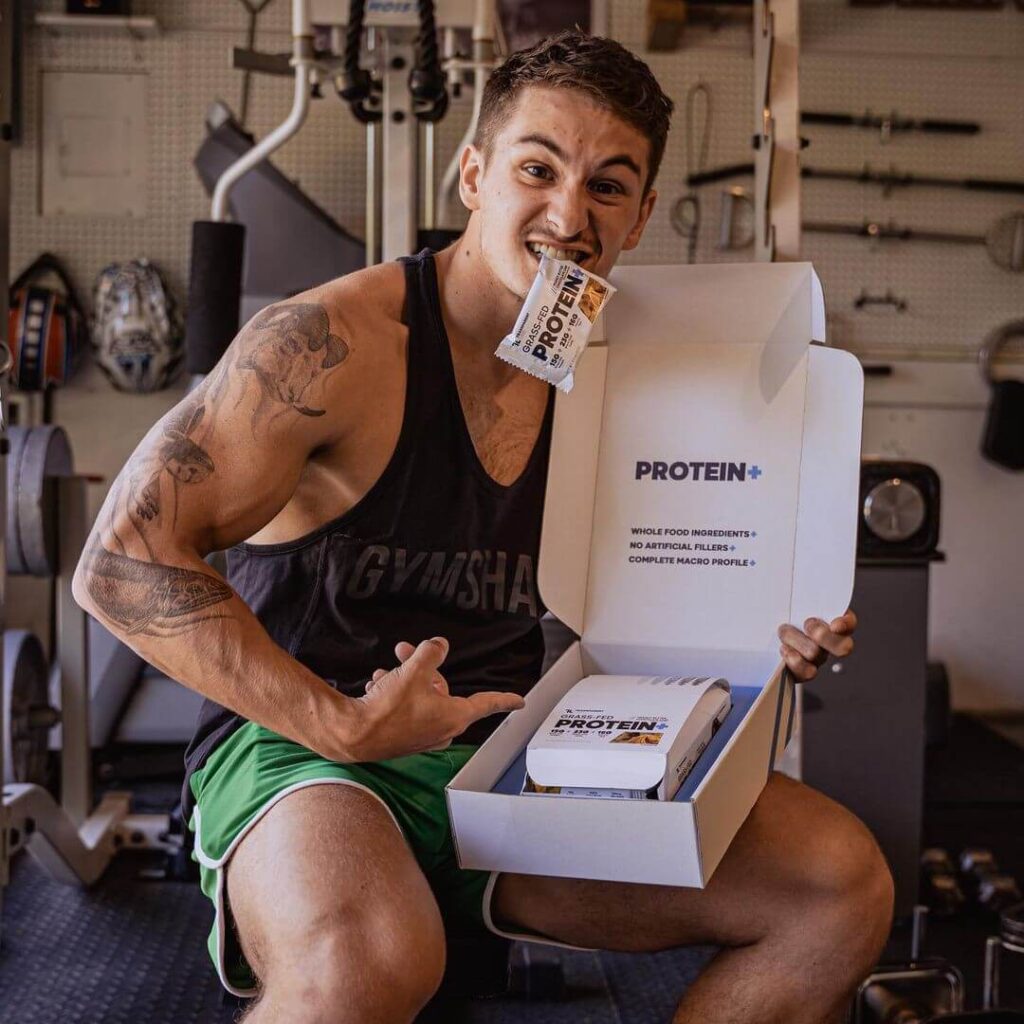
In terms of macros, you can expect 280 calories per bar, which includes a solid 15g of protein, and 3g of fiber.
It’s worth noting that because these bars are high-quality, they are also fairly expensive. Each bar will cost you ~$3.33, but in our opinion, this is a fair price for such a great option.
FAQ
Do Whey Protein Bars Cause Gas?
If you’re lactose intolerant, whey concentrate may cause gassiness. Whey isolate-based bars, which are lower in lactose, are less likely to cause issues. Beyond this, gassiness may be caused by other ingredients like sugar alcohols, fructose, stevia, or monk fruit.
What are Some Protein Bar Side Effects?
A common side effect of protein bars is gassiness. Despite common belief, this isn’t caused by the protein itself, but by additional components in the protein bar including lactose, fructose, sugar alcohols, stevia, and monk fruit.
Are Protein Bars Hard to Digest?
For most people, protein bars should not be difficult to digest. Any digestive issues caused by protein bars are likely linked to specific ingredients that can be avoided combined with digestive conditions like lactose intolerance or IBS.
Can Protein Bars Cause Diarrhea?
It’s possible that protein bars will produce symptoms like diarrhea. However, this is most likely caused by a condition such as lactose intolerance or IBS that’s being exacerbated by specific ingredients in the protein bar.
Conclusion
Can protein bars upset your stomach? Absolutely, but it may not be protein bars themselves causing the problem.
If protein bars give you gas, specific ingredients are likely the root of your problem. By avoiding lactose, fructose, sugar alcohols, stevia, and monk fruit, protein bars are much less likely to cause gassiness.
If you’re looking for a bar that ticks most of these boxes, check out Transparent Labs.
Have you found that protein bars cause you stomach issues? Let us know in the comments below!
Also read:
- How Many Protein Bars A Day? When is it Too Much?
- Do Protein Bars Make You Gain Weight?
- Why Do Protein Bars Taste Bad?
- Is It Bad To Eat Protein Bars Without Working Out?
- Protein Bars vs Shakes: The Guide You Need
- Is It Bad to Eat Protein Bars Everyday
- Are Protein Bars Good For Breakfast?
References:
- Conditions and Diseases, “Lactose Intolerance” John Hopkins Medicine, https://www.hopkinsmedicine.org/health/conditions-and-diseases/lactose-intolerance#:~:text=Lactose%20intolerance%20is%20when%20your,your%20body%20can%20absorb%20it. (Accessed May 8, 2024)
- UVA Nutrition, “Low Fructose Diet,” University of Virginia Health System, https://med.virginia.edu/ginutrition/wp-content/uploads/sites/199/2023/12/Low-Fructose-2023.pdf (Accessed May 8, 2024)
- Matthew Solan, “How Healthy is Sugar Alcohol,” Harvard Health Publishing, https://www.health.harvard.edu/blog/how-healthy-is-sugar-alcohol-202312183002#:~:text=Because%20sugar%20alcohols%20are%20slowly,and%20cause%20a%20laxative%20effect. (Accessed May 8, 2024)
- Natalie Olsen & Jon Johnson, “What are Monk Fruit and Stevia,” Medical News Today, https://www.medicalnewstoday.com/articles/322769#stevia (Accessed May 8, 2024)
- Recreation, “The Rundown on Protein Powders,” Georgia State University, https://recreation.gsu.edu/2023/03/31/the-rundown-on-protein-powders/ (Accessed May 8, 2024)
- Photos made by Torokhtiy Media Team.
Why Trust Us?
With over 20 years in Olympic weightlifting, strength training, nutrition coaching, and general fitness our team does its best to provide the audience with ultimate support and meet the needs and requirements of advanced athletes and professional lifters, as well as people who strive to open new opportunities and develop their physical capabilities with us.
By trusting the recommendations of our certified experts in coaching, nutrition, and sports training programming, as well as scientific consultants, and physiotherapists, we provide you with thorough, well-considered, and scientifically proven content. All the information given in the articles concerning workout programming, separate exercises, and athletic performance, in general, is based on verified data.
The product testing process is described in more detail here.
Camila has worked as a Nutritionist for 7 years. In addition to being a nutritionist, she is an amateur weightlifting athlete for 2 years. Camila has experience at Flamengo’s football base and in a food supplement company and currently provides services at a clinic. At the moment she is coursing a postgraduate study in Sports Nutrition.
Reviewed by: Jacek Szymanowski
Certified Nutritionist,
M.Sc.Eng. Biotechnology
Performance architect,
Strength and Conditioning Specialist
With over 30 years of fighting experience, specialization in nutrition coaching for athletes, and expertise in metabolic health and dietary strategies, Jacek offers a comprehensive approach to optimizing your performance and well-being. Backed by a Master of Science degree in Biotechnology, Jacek remains at the forefront of scientific advancements, ensuring that his coaching is always evidence-based and up-to-date.




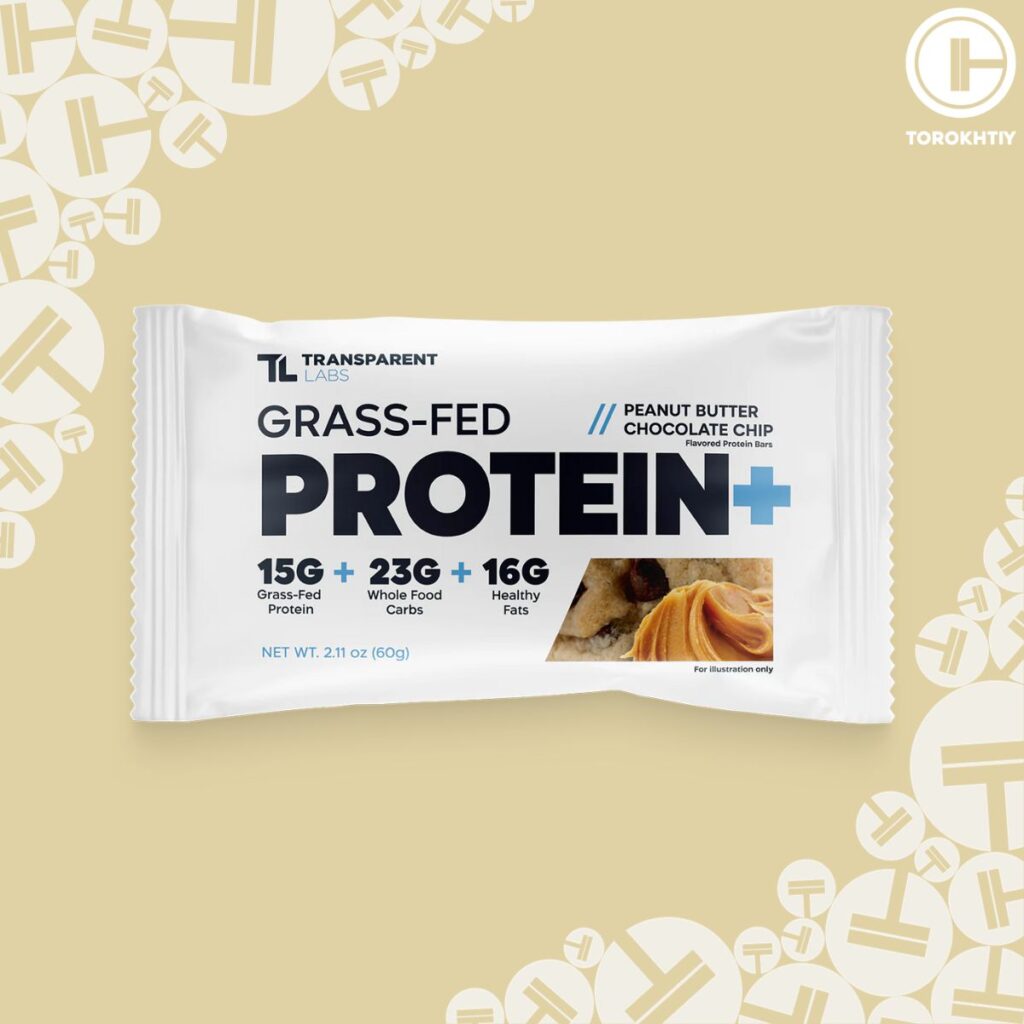
Still have questions after reading our article? Unlock your full potential by engaging with our experts and community! Don’t hesitate — leave a comment below and Camila Parente Santos will provide a personalized answer and insights to help you reach your goals.